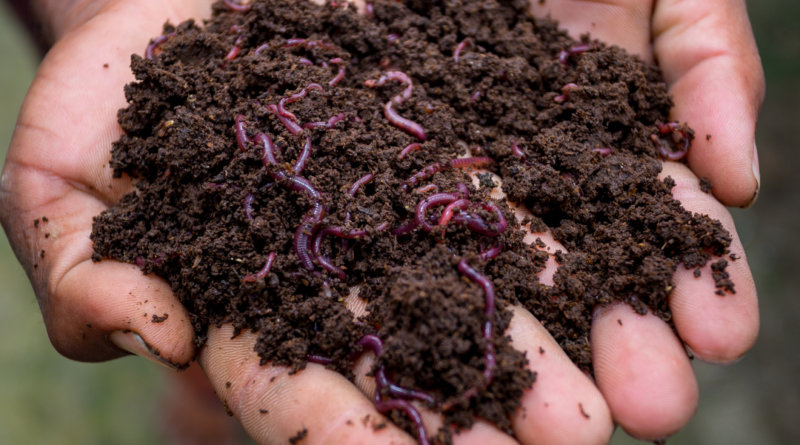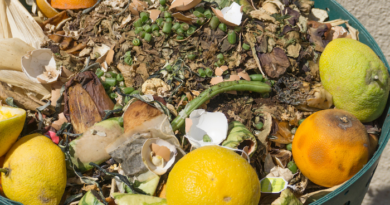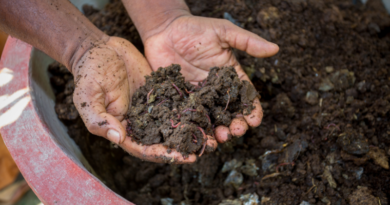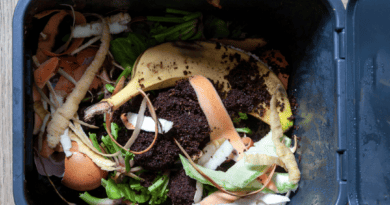6 Reasons Why Your Worm Bin Has A Bad Smell
When your worm bin smells bad, it is easy to be discouraged and assume that you are not doing things right. A foul smell coming from your worm bin is not a good sign, but it is also not a reason to be discouraged or to give up as the underlying cause could be easily determined and corrected. Here are 3 likely reasons why your worm bin has a bad smell.
1) Oxygen
In the absence of oxygen, also known as anaerobiosis, worms become unhealthy and may die as anaerobic microorganisms break down the food waste. These particular microorganisms live and reproduce when oxygen is absent. As they break down the waste they produce bad-smelling gases. Ensure to have oxygen present and available throughout the bedding so that worms and other microorganisms can break down the waste aerobically.
Read More: Worms Eat My Garbage; How to set up and maintain a worm composting system by Mary Appelhof and Joanne Olszewski
2) Food
Look at what you’re feeding your worms and how you’re feeding it. If you’re adding more food than the worms can eat quickly, some of it is bound to rot and stink. At the same time, if you don’t bury that food at least an inch under the surface of the bedding, it may start to smell before your worms get to it. Certain worm-friendly foods, like onions and broccoli, naturally smell as they break down, but so do oily foods like meat, bones, dairy and oils — never feed these to worms because they’ll become rancid.
Read more at Gardening Know How: Bad Vermiculture Odor: What to Do For Rotten Smelling Worm Bins https://www.gardeningknowhow.com/composting/vermicomposting/smelly-worm-bins.htm
3) Moisture
If there is one issue that is most likely to cause a worm bin to smell, it’s excess moisture. Think of the issues that excess moisture causes in homes: mould and mildew… and the smell that comes with it. Water is a critical element for worms but too much causes problems. Excess moisture in the bin can prevent air from flowing effectively throughout the bin and cause anaerobic conditions within the bin (source). Having proper drainage is a key part of preventing this. So is having adequate air holes. But the primary thing that you have control of every day is how much moisture you are adding to your bin. And it is introduced in two ways:
- Excess Watering
- Too Many Water-Rich Foods
4) Excess Watering
If you are putting too much water in and it lacks sufficient drainage to take away the excess, water will begin to pool in the bottom of the bin. That pooling of water will become stagnant and anaerobic. Your worms can actually drown in this water because it lacks oxygen. But the point here is that the water will begin to cause the bedding to smell. And the longer it sits, the worse the odour will be.
The solution to this is to correct the drainage issue. Your bin may need more holes in the bottom or it could be that the wet cardboard and paper in the bottom of the bin have become so saturated that they are pressed down over the holes and sealing them. You may need to remove a bottom couple of inches of bedding if it is severely oversaturated.
5) Too Many Water-Rich Foods
A lot of the fruits and vegetable scraps that are so great for worm bins are very water-rich. If you are putting in more than the worms can eat, the excess moisture will slowly build up. Again, proper drainage can minimize this problem but putting more food in than can be consumed just results in moldy, rotting foods and more odors.
Make sure that the food is being eaten (or mostly eaten) before adding more. If the moisture is building up, it’s okay to stop feeding for a few days while you get the bin back into balance. Then, introduce water-rich foods in smaller quantities and judge future amounts by how much they are eating.
6) Rotting Food Causes Worm Bins To Smell
There is a lot of misconception about rotting food when it comes to worm bins. The truth is, worms depend on some level of decay for larger food items to become small enough that they can consume them. Red wiggler worms don’t have teeth so your kitchen waste becomes an easier meal as it breaks down.
But when too much food (or the wrong kinds of food) are left in a bin to rot, it can cause very unpleasant odours.
This takes us back to managing how much food is placed in the bin at a time. Too many people think of their worm bin as a wastebasket. It needs to be managed a little more carefully than that so that we don’t create a stinky pile in a box. Avoid meats and dairy. Their odours are downright offensive when they spoil and will attract rodents which can lead to further issues.
Read More Why Does My Worm Bin Smell? Causes and Troubleshooting Steps https://thrivingyard.com/why-does-worm-bin-smell/
Conclusion
A worm bin that smells likely means that you have one or more of these issues. Troubleshoot them one by one and see if you can identify what area needs correcting. Once you know where the issue is it is pretty easy to solve these and you can get rid of that smell in your bin.




